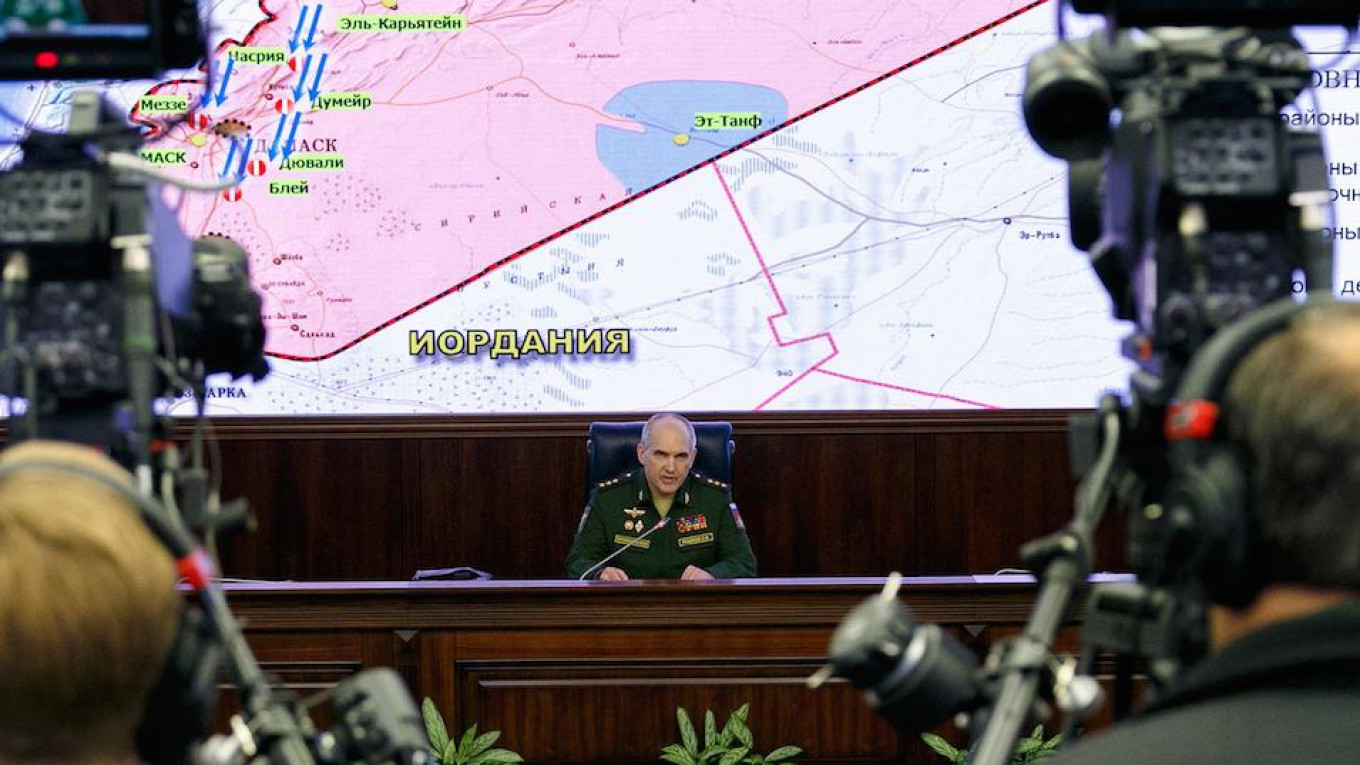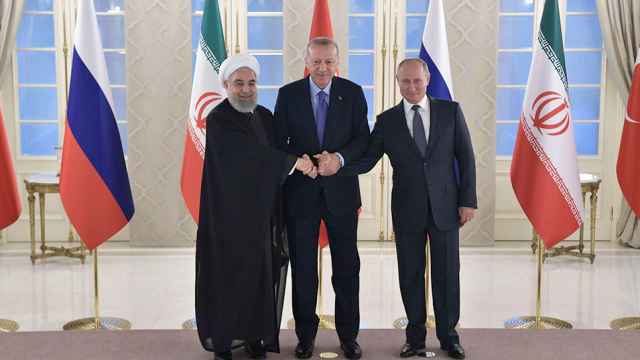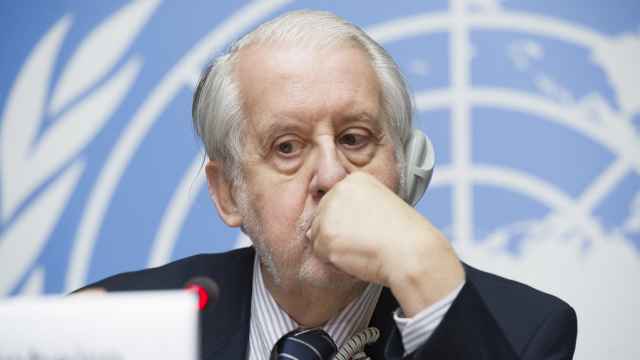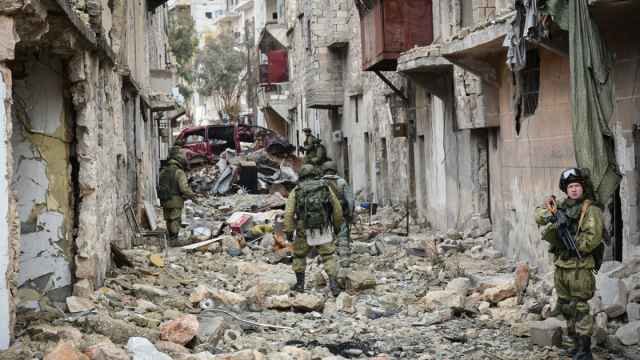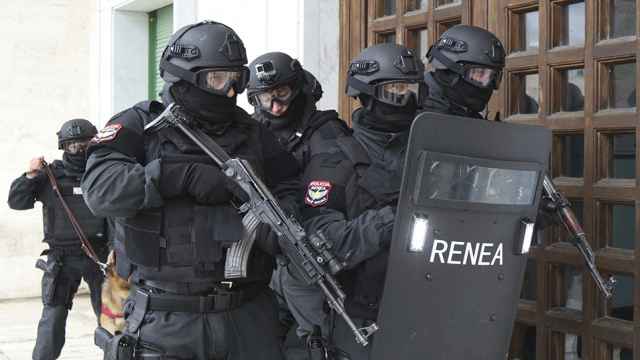Russia has responded angrily to Western air strikes on Damascus in response to a suspected poison gas attack last week.
Overnight, U.S., British and French forces launched more than 100 missiles from ships and manned aircraft, targeting three of Syria's main chemical weapons facilities.
The strikes were a response to a suspected chemical weapons attack on the Syrian town of Douma last weekend which killed dozens of civilians. Syria and its ally Russia have denied such an attack took place, and Moscow has accused Britain of helping to stage the Douma incident to stoke anti-Russian hysteria.
Russia's Defense Ministry was quoted as saying by Russian news agencies that Syria intercepted the U.S. and allied attacks using Soviet-produced hardware, including the Buk missile system. Colonel-General Sergei Rudskoi on Saturday said Russia may consider supplying S-300 missile systems to Syria.
In Russia, an ally of Syrian President Bashar al-Assad, the strikes have been portrayed as a violation of international law and undermining Syria's chances of peace.
"First the 'Arab spring' tested the Syrian people, then Islamic State, now smart American rockets. The capital of a sovereign government, trying for years to survive under terrorist aggression, has been attacked," Foreign Ministry spokeswoman Maria Zakharova wrote on Facebook.
"You have to be quite abnormal to attack Syria’s capital just at the moment when it had a chance for a peaceful future."
The chairman of the international affairs committee of Russia's upper house of parliament, Konstantin Kosachev, said the strikes were a violation of international law and probably designed to prevent investigators from the global chemical weapons watchdog from doing their work.
"It's also highly likely an attempt to create complications for the Organization for the Prohibition of Chemical Weapons mission which was just starting its work in Syria's Douma, or an attempt to completely derail it," Kosachev was quoted as saying by the Interfax news agency.
None of the air strikes hit zones where Russian air defense systems protect the Russian bases of Tartus and Hmeimim, Russian news agencies cited the Defense Ministry as saying.
Russian lawmaker Vladimir Dzhabarov said on Saturday that Russia was likely to call for a meeting of the United Nations Security Council.
"The situation is being analyzed right now. Russia will demand a meeting of the UN Security Council, I think, for sure," Dzhabarov, who is the deputy head of Russia's foreign affairs committee, was quoted by RIA as saying.
A team of inspectors from the OPCW arrived in Syria on Thursday and Friday and had been expected to start their investigation into the alleged Douma attack on Saturday.
The OPCW did not immediately respond to a request for comment on whether the work would go ahead.
A Message from The Moscow Times:
Dear readers,
We are facing unprecedented challenges. Russia's Prosecutor General's Office has designated The Moscow Times as an "undesirable" organization, criminalizing our work and putting our staff at risk of prosecution. This follows our earlier unjust labeling as a "foreign agent."
These actions are direct attempts to silence independent journalism in Russia. The authorities claim our work "discredits the decisions of the Russian leadership." We see things differently: we strive to provide accurate, unbiased reporting on Russia.
We, the journalists of The Moscow Times, refuse to be silenced. But to continue our work, we need your help.
Your support, no matter how small, makes a world of difference. If you can, please support us monthly starting from just $2. It's quick to set up, and every contribution makes a significant impact.
By supporting The Moscow Times, you're defending open, independent journalism in the face of repression. Thank you for standing with us.
Remind me later.


